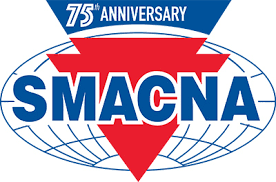Frequently Asked Questions
How does bending affect sheet metal fabrication processes?
Bending significantly influences sheet metal fabrication processes by determining the precision and accuracy of the final product. It enables the creation of complex shapes and angles, which are essential for functionality in various applications.
What is the primary purpose of sheet metal fabrication?
The primary purpose of sheet metal fabrication is to create custom metal products through processes like cutting, bending, and assembling, which are essential for various applications in construction, HVAC systems, and industrial manufacturing.
What are the advantages of sheet metal fabrication services?
The advantages of sheet metal fabrication services include precise customization, cost-effectiveness, durability, and quick production times. These benefits make it an ideal choice for various applications in both residential and commercial sectors.
How does welding impact sheet metal fabrication?
Welding significantly impacts sheet metal fabrication by ensuring strong, durable joints between metal pieces, enabling precise assembly and enhancing the structural integrity of products. This process is essential for creating reliable custom fabrications and installations in various applications.
What are the benefits of outsourcing sheet metal fabrication?
The benefits of outsourcing sheet metal fabrication include cost savings, access to specialized expertise, and enhanced production efficiency. This allows businesses to focus on core operations while ensuring high-quality, precise metal fabrications tailored to their specific needs.
How does sheet metal fabrication aid in product design?
Sheet metal fabrication aids in product design by providing customizable, durable components that can be precisely tailored to meet specific functionality and aesthetic requirements, facilitating innovation while ensuring structural integrity in various applications.
Can sheet metal fabrication be used for industrial applications?
Sheet metal fabrication can be effectively used for industrial applications. It provides durable and customized solutions for components such as ductwork, structural supports, and enclosures, catering to the specific needs of various industrial settings.
Is sheet metal fabrication a costly process?
The cost of sheet metal fabrication can vary based on factors like material type, complexity of the design, and volume of production. While it can be an investment, it often provides long-term value in durability and functionality for various applications.
What are the common materials used for fabrication?
The common materials used for fabrication include steel, aluminum, stainless steel, and copper. These materials are favored for their durability, versatility, and suitability for various applications in sheet metal fabrication.
Can sheet metal fabrication be used for decorative purposes?
Sheet metal fabrication can indeed be used for decorative purposes. It allows for the creation of unique and aesthetically pleasing elements such as custom art pieces, architectural details, and ornamental features that enhance the visual appeal of residential and commercial spaces.
What are the different types of sheet metal fabrication?
The different types of sheet metal fabrication include processes such as cutting, bending, welding, and assembling, which are used to create products like ductwork, metal roofs, and custom metal components for various applications.
How is sheet metal fabrication used in construction?
Sheet metal fabrication is essential in construction as it provides customized components like ducting, roofing, and structural supports that enhance the durability and efficiency of buildings, both residential and commercial.
Can sheet metal fabrication be used for robotics?
Sheet metal fabrication can indeed be utilized in robotics. It allows for the creation of durable, precise components that are essential for building robotic structures and machinery.
Can sheet metal fabrication be used for medical equipment?
Sheet metal fabrication can be utilized for medical equipment. It allows for the creation of durable, precise components essential in various medical devices, ensuring both functionality and compliance with health standards.
How does quality control impact sheet metal products?
Quality control significantly impacts sheet metal products by ensuring that they meet industry standards and specifications. This process helps prevent defects, enhances durability, and ultimately leads to greater customer satisfaction and reliability in both residential and commercial applications.
What are the common industries that use fabrication services?
Common industries that use fabrication services include construction, HVAC, automotive, aerospace, and manufacturing. These sectors rely on custom metal components for structures, systems, machinery, and equipment, highlighting the versatility of fabrication services.
How does laser cutting aid sheet metal fabrication?
Laser cutting significantly enhances sheet metal fabrication by providing high precision and flexibility in cutting intricate designs. This technology enables faster production times and reduces material waste, making it ideal for both custom projects and large-scale manufacturing.
What tools are required for sheet metal fabrication processes?
The tools required for sheet metal fabrication processes include snips, shears, brakes, welders, and plasma cutting machines. These tools enable precise cutting, bending, and joining of sheet metal for various applications.










